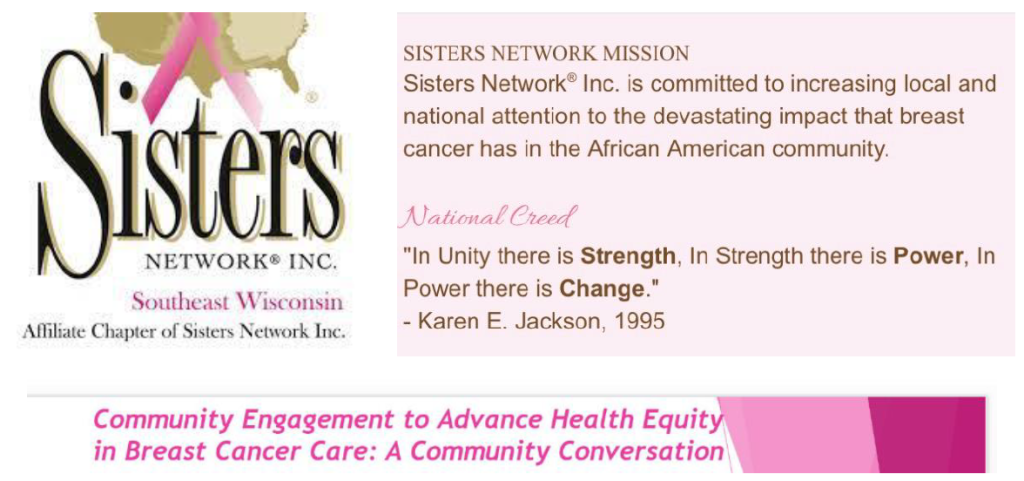
A new article was recently released examining health equity in breast cancer care. Read the full article, written by Shannon Shelton Miller below, or click here to download a PDF copy.
It’s All About Community — Advancing Health Equity in Breast Cancer Care
By Shannon Shelton Miller
It’s long been the norm to view doctors, nurses, researchers and health care institutions as the authorities in breast cancer care. They provide treatment and information, while patients simply sit back and follow their expert guidance.
More specialists, however, have begun to challenge that approach. Patients and survivors should be positioned as experts as well, and health care providers could improve breast cancer outcomes through more intentional engagement with individuals and their communities.
“Break down the hierarchy,” said Dr. Adrienne Cobb, a breast surgical oncologist and assistant professor of surgery at the Medical College of Wisconsin who researches racial disparities in breast cancer death rates. “We can learn from each other.”
Cobb was one of four Medical College of Wisconsin specialists who joined the Sisters Network of Southeast Wisconsin in August to discuss how a community-engaged approach could lead to better breast cancer outcomes for African American women, who are often underrepresented in research, clinical trials and other health care initiatives. Dr. Abiola Keller, associate professor in the College of Nursing at Marquette University, facilitated the webinar.
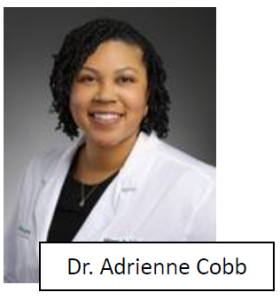
Sisters Network is a national African American breast cancer survivorship and advocacy organization, and the Southeast Wisconsin chapter serves women in Kenosha, Racine and Milwaukee counties, and northern Illinois suburbs.
“The community has a level of expertise that we may not have if we’re not a part of it,” said Dr. Lola Awoyinka, who studies how stress and social struggle can impact cancer survivors’ health outcomes. “That expertise is not just about the problem, it’s also about the solution. By engaging community, you’re building their capacity to better address these issues going forward.”
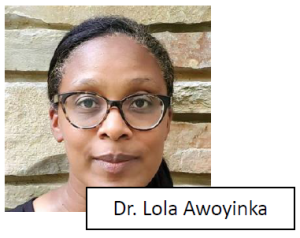
Seeing the whole person
A comprehensive approach to community engagement should include not only health care providers, but medical institutions and health care systems as well. Panelists said it’s important for their hospitals and institutions to hold events in the communities they serve and provide education on common health concerns affecting residents.
True community engagement can’t be a one-off event – it must be consistent and repeated to build trust. Community members should feel the hospital, university or other institution is part of their community, not an outsider.
“I try to listen first and talk second,” said Dr. Melinda Stolley, a clinical psychologist who focuses on creating programs and interventions that support positive health changes. “Be present. Engagement is not an expectation, but something that’s earned and develops over time by treating each other with respect, valuing different perspectives, sitting with discomfort and being honest.”
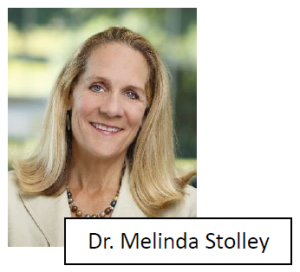
It’s easy as well for doctors and researchers to only see the illness and not the person. While a breast cancer diagnosis might be the reason the patient is visiting the hospital, health care providers should take time to explore what other stressors that patient might be facing. Are they navigating housing insecurity, unemployment, underinsurance or lack of insurance? What is their full spectrum of needs?
“I like to ask them what their support system is and what’s most important to them,” said Dr. Amanda Kong, chief of the section of breast surgery and professor of surgery at the Medical College of Wisconsin who studies the relationship between hospital volume and patient outcomes. “For some it’s psychological, for others it’s financial. Our care is not just helping fix a person and their cancer, it’s addressing everything else that goes along with it.”
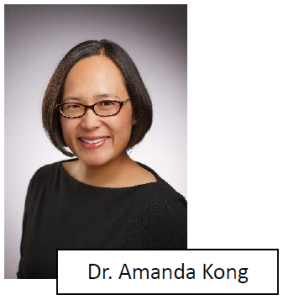
Increasing representation in clinical research
Clinical trials have long helped researchers develop new drugs and procedures, or find new ways to use existing treatments to prevent, detect or treat disease. The experimental treatments can help extend patients’ lives or improve their quality of life, while also helping future patients who could benefit from these new discoveries.
Unfortunately, people of color, including African American women, remain under-represented among trial participants. While there’s a documented history of distrust of the medical system among many people of color, the webinar participants explored other reasons African American women might not be involved in many studies – and how that can change.
Keeshia Jones, president of the Sisters Network of Southeast Wisconsin chapter, said she receives many requests from researchers looking to include more African American women in their studies. That’s not necessarily the best approach, Jones said, because those researchers haven’t built relationships with members of the community they’re looking to study.
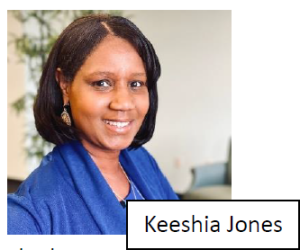
Even when Jones received her first breast cancer diagnosis – Stage I – she did not sign up for any clinical drug studies when her health care provider shared general information, as she thought this would delay her surgery.
“I think if I had been given information about an actual trial or research study, I may have participated or at least considered it,” Jones said. “It was more of a general conversation, but if I had received more information later, I would have read more into it.”
Jones’ experience isn’t unusual, Dr. Kong said. “People are overwhelmed and now you’re piling something else on top of them. You have to tell them why it’s important to participate and how you’re contributing to help future women. But to go there, you have to build a lot of trust.”
Stella Jones, a Sisters Network participant, said it all goes back to building relationships.
“With the group I have in Sisters Network, if they told me to participate, I would do it because I have that trust,” Jones said. “I know they’re not going to tell me to do something they haven’t already researched themselves. Because you look like me and I trust you, it’s a no-brainer.”
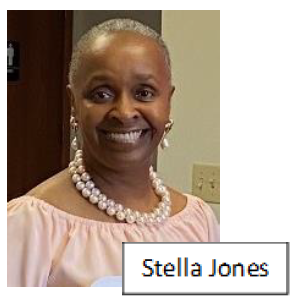
The medical providers agreed, saying researchers should take more time to explain trial details to patients, including how costs would be covered by insurance or hospital funds. Representatives should visit support and advocacy groups for African American women to discuss clinical trials and answer questions, as many might not be aware they exist.
Be empowered
Building relationships through community engagement was the overarching message for patients and health care providers at every step of their breast cancer journey. Providers and institutions should treat patients with respect and understanding, recognizing the importance of authentic and intentional community engagement in striving for the best possible outcomes for African American women with breast cancer and survivors.
As for patients and survivors, they should always feel they have a voice in their care.
“Feel empowered to ask questions,” Dr. Cobb said. “Ask your doctors if there are any clinical trials that apply to your situation and if so, how can you get more information. I want to empower you to advocate for yourself.”
If you’re interested in participating in a clinical trial, visit clinicaltrials.gov for a list of current trials across the U.S. You can also research clinical trial listings at academic medical centers, including ongoing research at Medical College of Wisconsin. Learn more about Sisters Network of Southeast Wisconsin at [email protected] or call (262)-488-7465.
